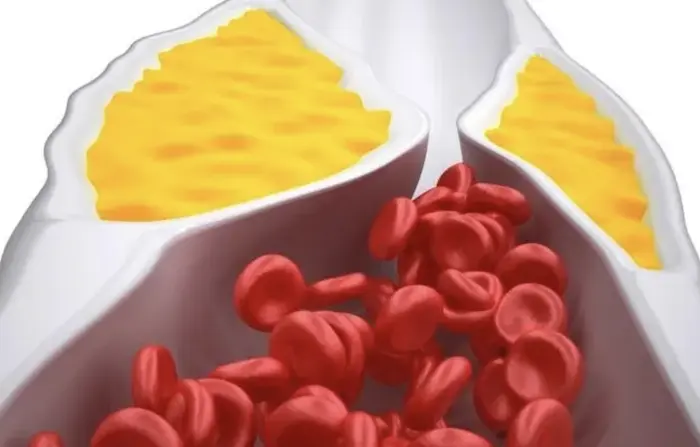Metabolic syndrome is a complex cluster of interconnected health conditions that significantly increase the risk of cardiovascular disease, type 2 diabetes, and stroke. It affects approximately one-third of adults in the United States, making it a major public health concern. Understanding its symptoms, underlying causes, and treatment options is essential for effective management and prevention.
What Is Metabolic Syndrome?
Metabolic syndrome, also known as syndrome X or insulin resistance syndrome, is characterized by the coexistence of several metabolic risk factors. These include high blood pressure, elevated blood sugar levels, excess abdominal fat, high triglycerides, and low HDL cholesterol levels. The presence of three or more of these factors leads to a diagnosis of metabolic syndrome, which substantially elevates the risk of cardiovascular events and diabetes.
The core pathophysiological mechanism behind metabolic syndrome is insulin resistance, where cells in muscles, fat, and the liver respond inadequately to insulin. This resistance impairs glucose uptake, resulting in hyperglycemia and compensatory hyperinsulinemia, which further exacerbates metabolic disturbances.
Causes of Metabolic Syndrome
The development of metabolic syndrome is multifactorial, involving genetic, environmental, and lifestyle factors:
Obesity, especially central or abdominal obesity, is the most significant risk factor. Excess fat around the waist is strongly associated with insulin resistance and dyslipidemia.
Sedentary lifestyle and physical inactivity contribute to weight gain and metabolic dysfunction.
Unhealthy diet high in processed foods, sugars, refined carbohydrates, and saturated fats promotes obesity and metabolic abnormalities.
Genetics play a role; certain gene mutations predispose individuals to obesity, insulin resistance, and dyslipidemia.
Hormonal imbalances, such as those seen in polycystic ovary syndrome or menopause, can influence metabolic risk.
Age increases susceptibility, with risk rising significantly after middle age.
Other factors include smoking, certain medications, and conditions like sleep apnea and fatty liver disease.
Symptoms of Metabolic Syndrome
Many aspects of metabolic syndrome are asymptomatic, especially in early stages. However, some symptoms may manifest depending on the specific component:
High blood sugar: Symptoms include increased thirst, frequent urination, fatigue, blurred vision, and in some cases, symptoms of prediabetes or diabetes.
High blood pressure: Often no symptoms; diagnosed through routine measurement.
Excess abdominal fat: Visible as a large waist circumference; may be associated with a “pear-shaped” or “apple-shaped” body.
Dyslipidemia: Elevated triglycerides and low HDL cholesterol typically do not cause symptoms but are detected through blood tests.
Other signs: Fatigue, headaches, and in severe cases, symptoms related to cardiovascular disease such as chest pain or shortness of breath.
Because many components are silent, routine screening is crucial for early detection.
Complications of Metabolic Syndrome
If left unmanaged, metabolic syndrome significantly increases the risk of:
Type 2 diabetes: Insulin resistance progresses to impaired glucose tolerance and overt diabetes.
Cardiovascular disease: Elevated blood pressure, dyslipidemia, and obesity promote atherosclerosis, leading to heart attacks and strokes.
Other health issues: Polycystic ovary syndrome, fatty liver disease, and hypogonadism are associated conditions.
Diagnosis
Diagnosis involves measuring specific risk factors:
- Waist circumference (central obesity)
- Blood pressure
- Fasting blood glucose
- Lipid profile (triglycerides and HDL cholesterol)
Meeting the criteria for three or more risk factors confirms the diagnosis.
Treatment Strategies
Effective management of metabolic syndrome requires a multifaceted approach targeting its underlying causes and associated risk factors:
Lifestyle Modifications
Weight Loss: Reducing body weight by at least 5-10% can significantly improve insulin sensitivity and lipid profiles.
Diet: Adopting a heart-healthy diet rich in fruits, vegetables, whole grains, lean proteins, and healthy fats. Limiting processed foods, sugars, and refined carbs is essential.
Physical Activity: Engaging in at least 150 minutes of moderate-intensity exercise per week, such as brisk walking or cycling, helps lower blood pressure, improve lipid levels, and promote weight loss.
Smoking Cessation: Quitting smoking improves HDL cholesterol levels and reduces cardiovascular risk.
Alcohol Moderation: Limiting alcohol intake supports metabolic health.
Pharmacologic Interventions
When lifestyle changes are insufficient, medications may be necessary to control specific components:
Antihypertensives: To manage high blood pressure.
Statins and fibrates: To lower triglycerides and LDL cholesterol.
Antidiabetic drugs: Such as metformin, to improve insulin sensitivity and control blood glucose.
Aspirin: Low-dose aspirin may be prescribed to reduce cardiovascular risk.
Monitoring and Follow-up
Regular monitoring of blood pressure, lipid levels, blood glucose, and waist circumference is vital. Adjustments to therapy should be made based on progress and emerging health issues.
Conclusion
Metabolic syndrome is a prevalent and serious health condition that predisposes individuals to cardiovascular disease and diabetes. Its silent nature underscores the importance of routine screening and early intervention. A comprehensive approach combining lifestyle modifications, pharmacotherapy when necessary, and ongoing monitoring can effectively reduce the risks associated with this syndrome. As a cardiovascular specialist, I emphasize that proactive management not only improves quality of life but also significantly decreases the likelihood of life-threatening complications.
Related topics:


